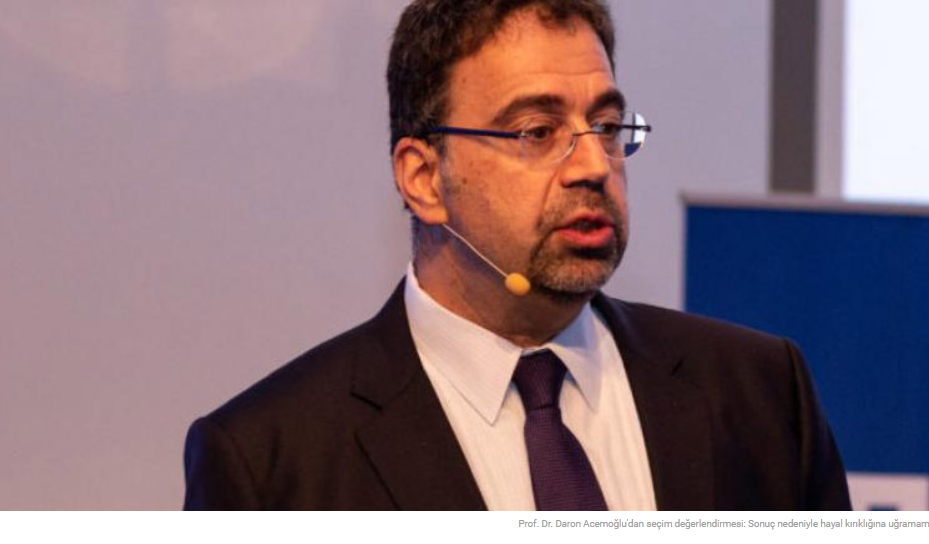Prof. Daron Acemoğlu pointed out that the real interest rate is still negative and stated that monetary policy has not been tightened to achieve the disinflation target.
Prof. Daron Acemoğlu, one of the world’s leading economists, made statements about the Turkish economy. In an interview with Reuters, Acemoğlu stated that he is not very optimistic about the current conditions for the Turkish economy and that he does not find the inflation forecasts of the Central Bank of the Republic of Turkey realistic.
Acemoğlu pointed out that the real interest rate is still negative compared to current inflation and said that monetary policy has not been tightened to achieve the disinflation target.
In response to a question about the difference between gradual and faster tightening, Acemoğlu said, “If they still keep (tightening) at negative real interest rates, it will not be enough.”
Tightening not insisted on due to elections
Although there are bigger structural problems that need to be addressed, Acemoğlu criticized the government’s economic policies, especially in the last 10 years, which were aimed at increasing aggregate demand through monetary and credit policies. Acemoğlu told “At certain intervals (this policy) became unsustainable and they had to raise interest rates. But then they lowered interest rates again and then raised them again, and I think this has become quite unsustainable,” adding that all this made a correction necessary.
Acemoğlu said that just before the local elections on March 31, the government did not insist much on tightening steps. “Slowing down demand too much is unacceptable for Erdogan given the election,” he added.
Acemoglu said that although some investors have changed their outlook on the Turkish economy since last year, he did not expect the change in policies to generate portfolio investment similar to that which followed the post-2000 crisis reforms.
Investment decisions may be negatively affected
“I think investors would have to be out of their minds to think that Turkey’s macro economy is normalizing, that Turkey’s structural problems have been solved and that you can come in with a large direct investment,” Acemoglu said.
Stating that this process may negatively affect investment decisions since publicly controlled economic policies do not have a free market focus, Acemoglu said that this process will reduce the investment appetite of both domestic and foreign companies, especially in new technology.
Stating that the technological content of Turkey’s exports is still close to what it was 15 years ago, Acemoglu said that it was not possible to talk about productivity growth in the economy.
“In other words, there has not been any technological progress that you would expect from a middle-income country,” Acemoğlu said.
